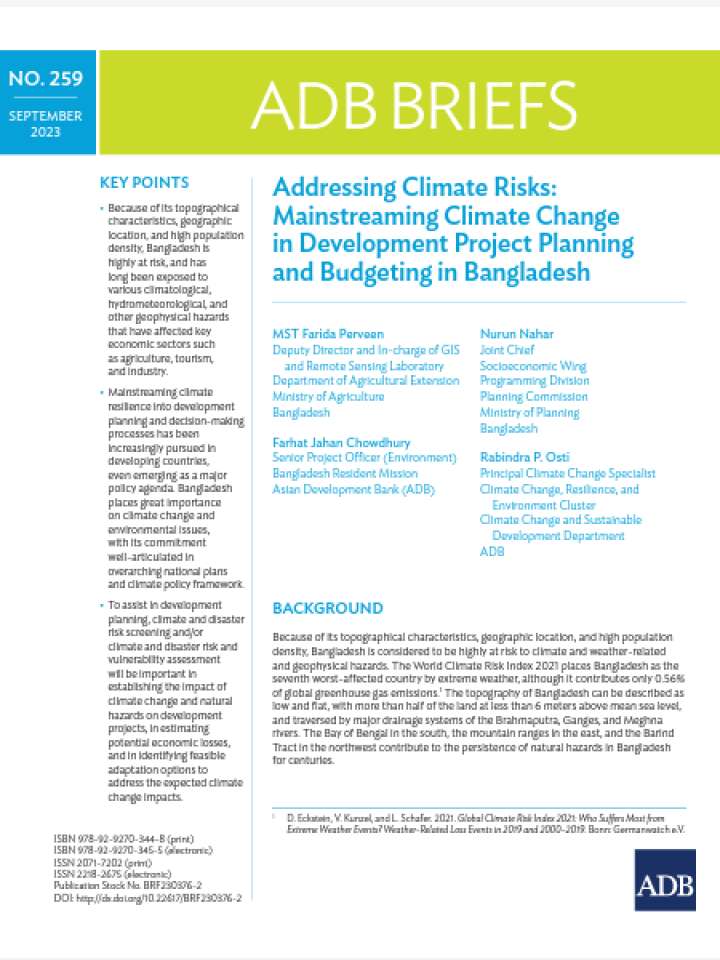Addressing climate risks: Mainstreaming climate change in development project planning and budgeting in Bangladesh
This brief shows how Bangladesh can improve development planning and boost resilience by comprehensively analyzing climate and disaster risk to better calculate possible economic losses and implement effective adaptation measures.
The following are ways forward to do mainstreaming in key levels and areas in Bangladesh.
- Identifying gaps. Despite substantial progress, gaps and weaknesses remain in Bangladesh’s institutional capacity to address climate change. A complete legal framework conducive to fully incorporating climate change factors into development planning and budgeting is essential
- Instituting policy mandates. As earlier discussed, Bangladesh has already begun mainstreaming climate change adaptation into its development planning system, which is reflected through various activities and initiatives over the last decade.
- Expanding the use of technology in screening and mapping. Geographical information system (GIS) is a powerful tool for geo-environmental analysis and appraisal of natural resources.
- Advancing partnerships. Addressing climate change in Bangladesh also requires multistakeholder national coordination committees—chaired by a ministry with sufficient ability and mandate for macro-policy formulation, planning, and implementation— to facilitate managing the national adaptation strategy more effectively.
- Pursuing climate financing. The Bangladesh government has been doing considerable work to address the overwhelming impacts and consequences of climate change.
Explore further
